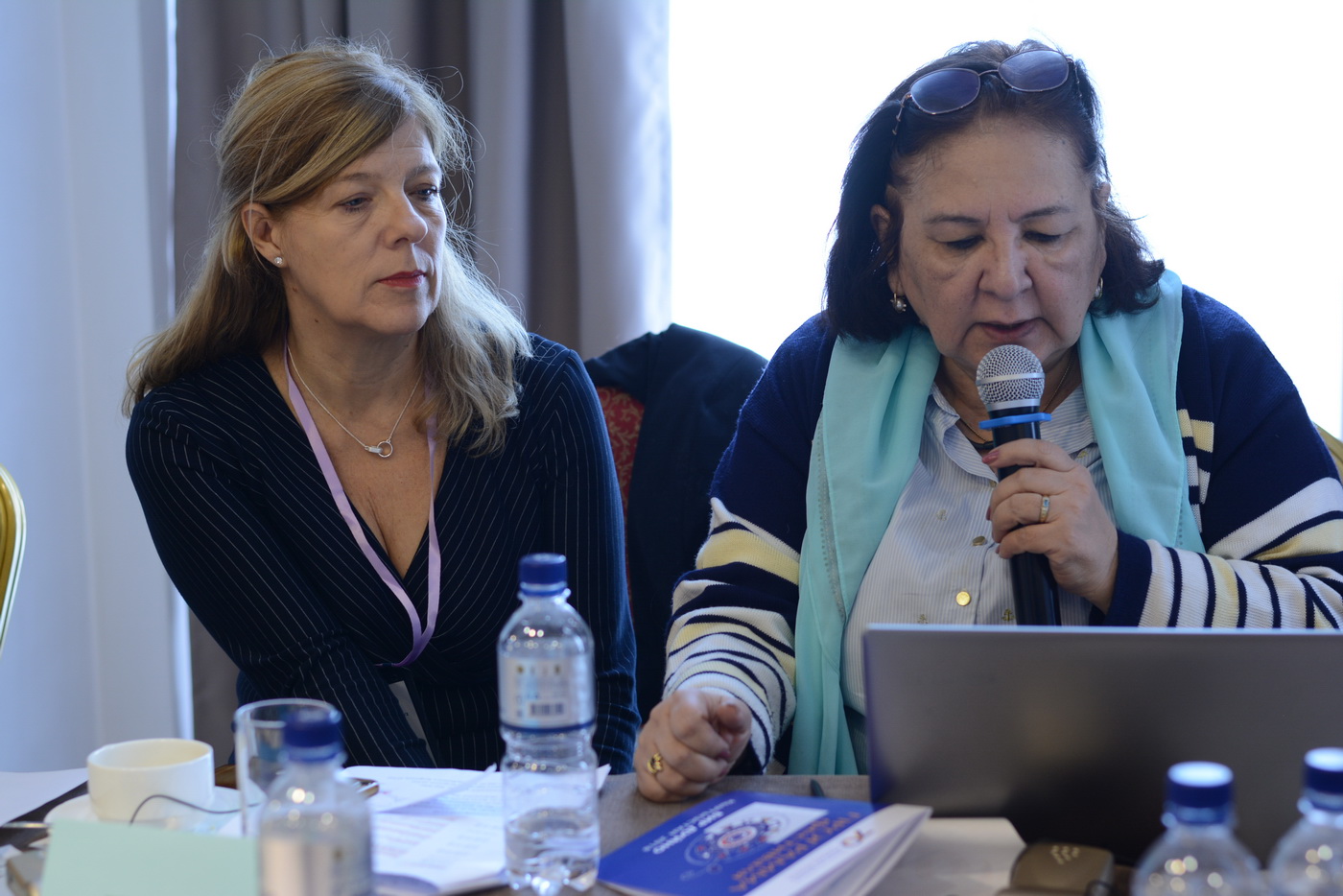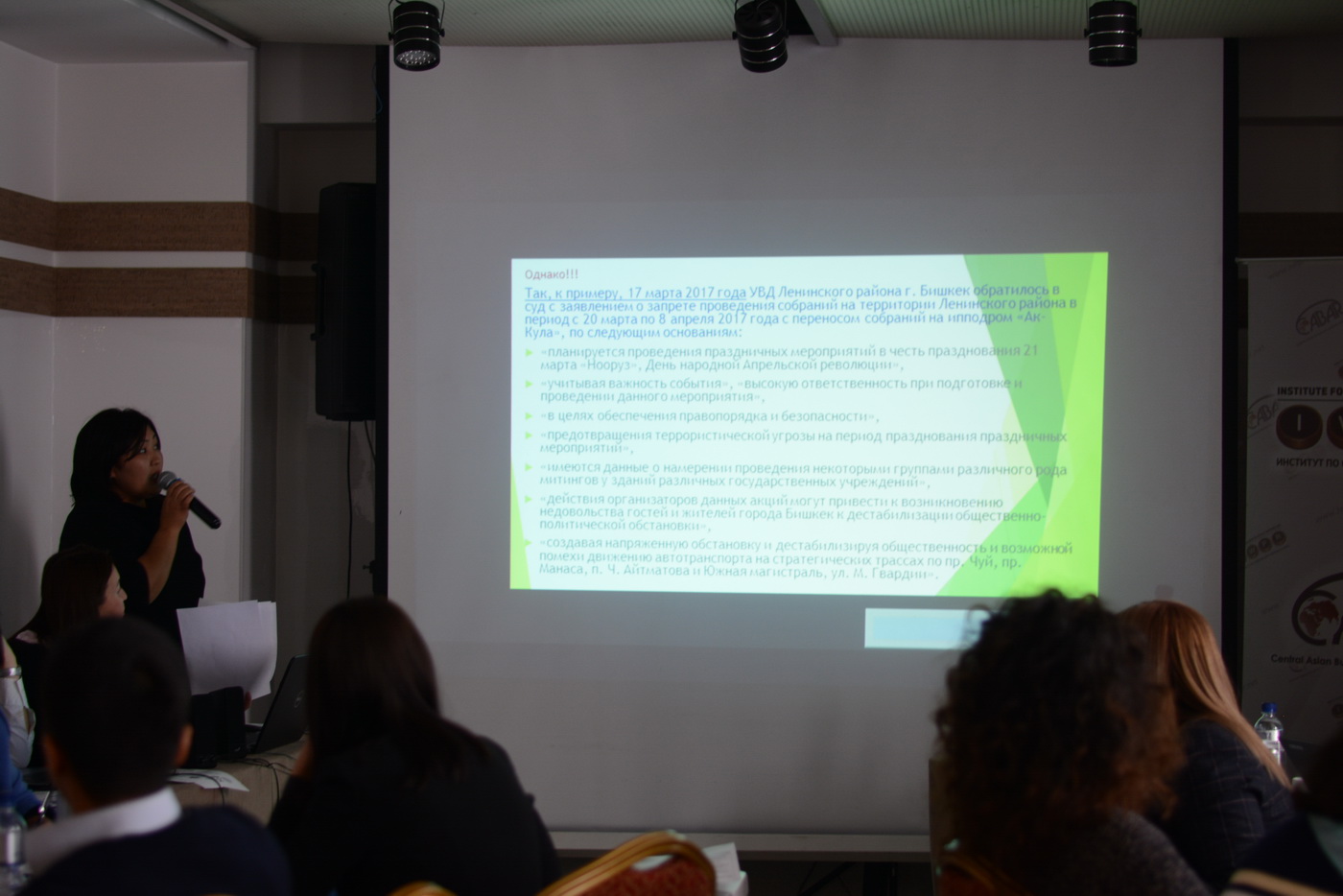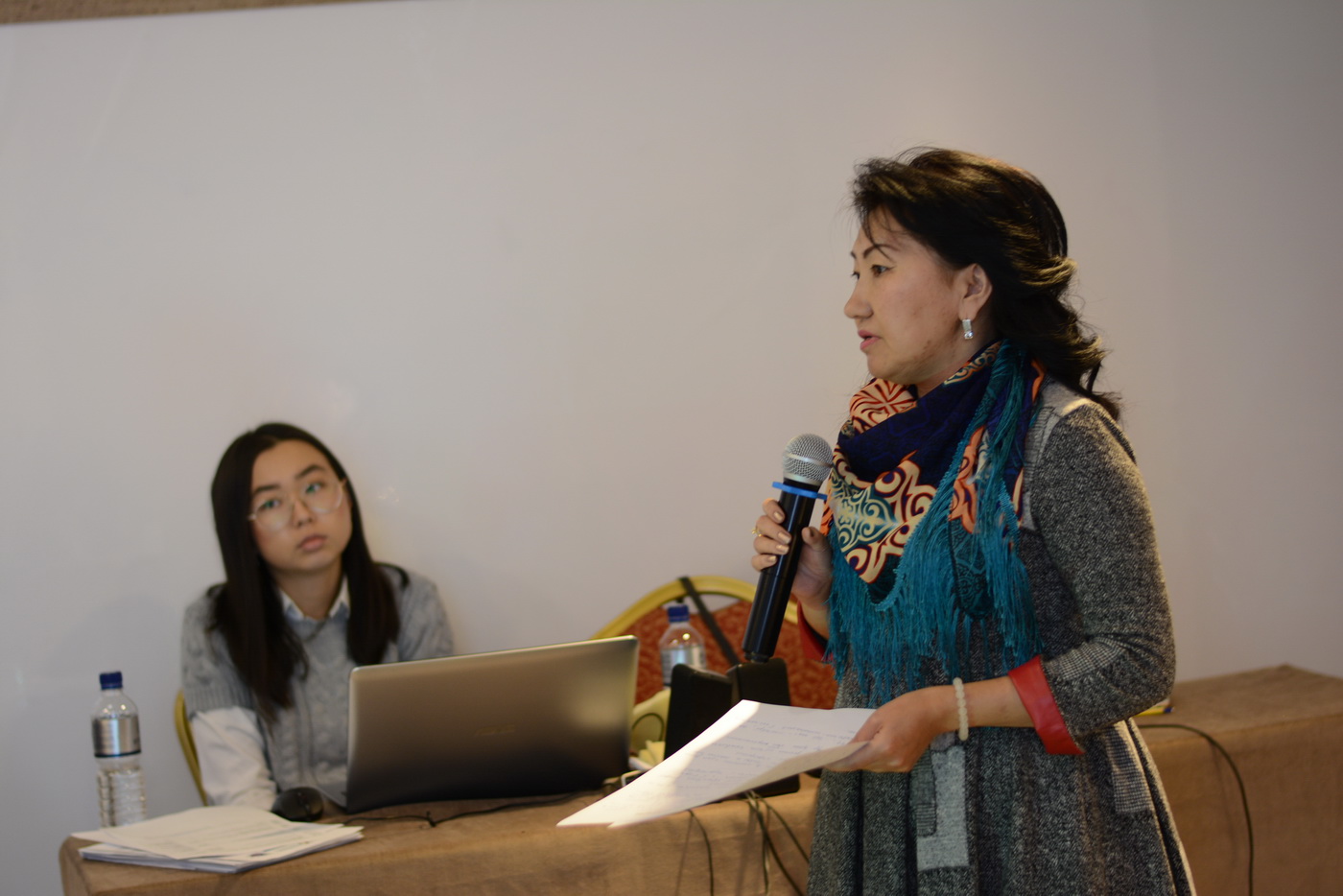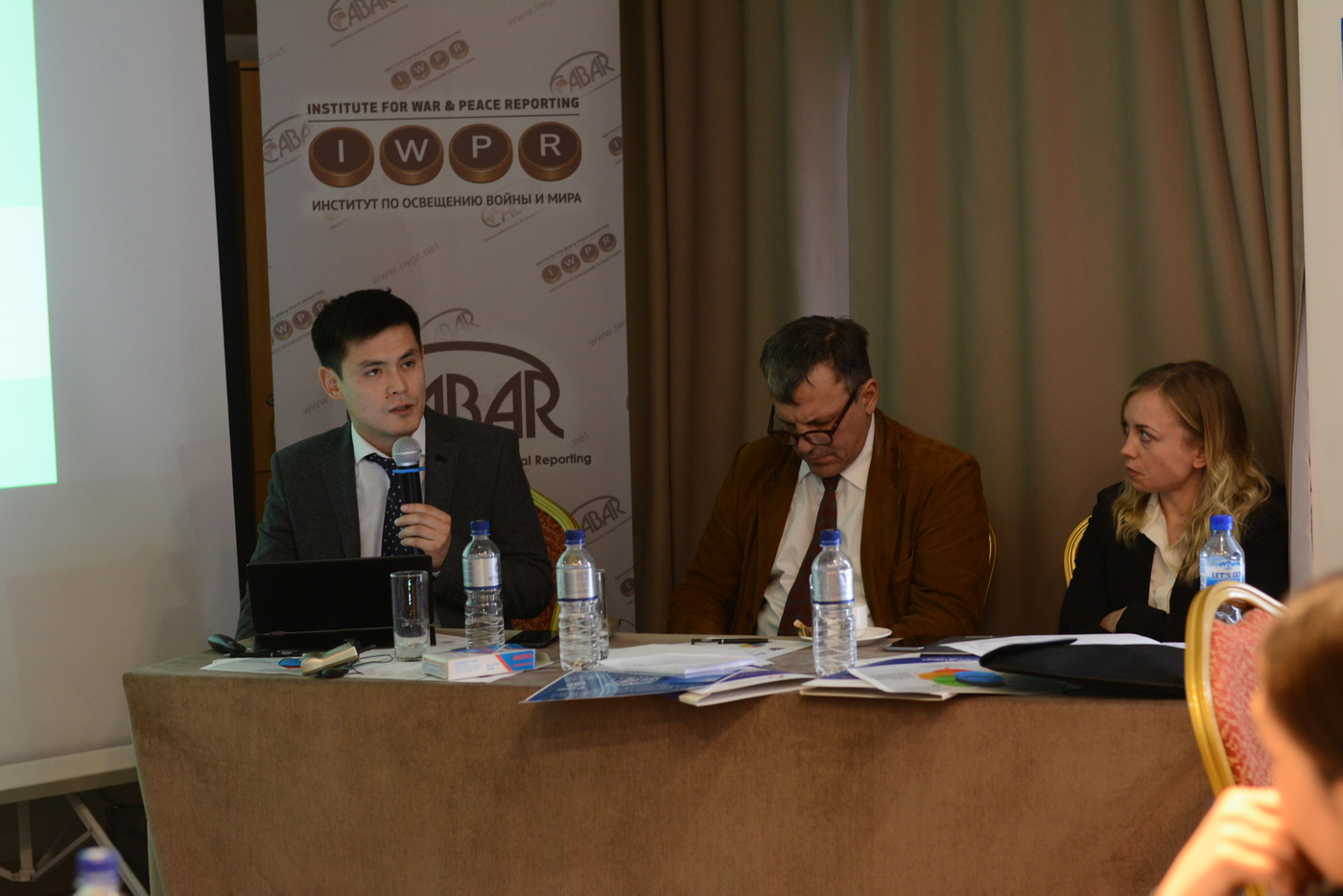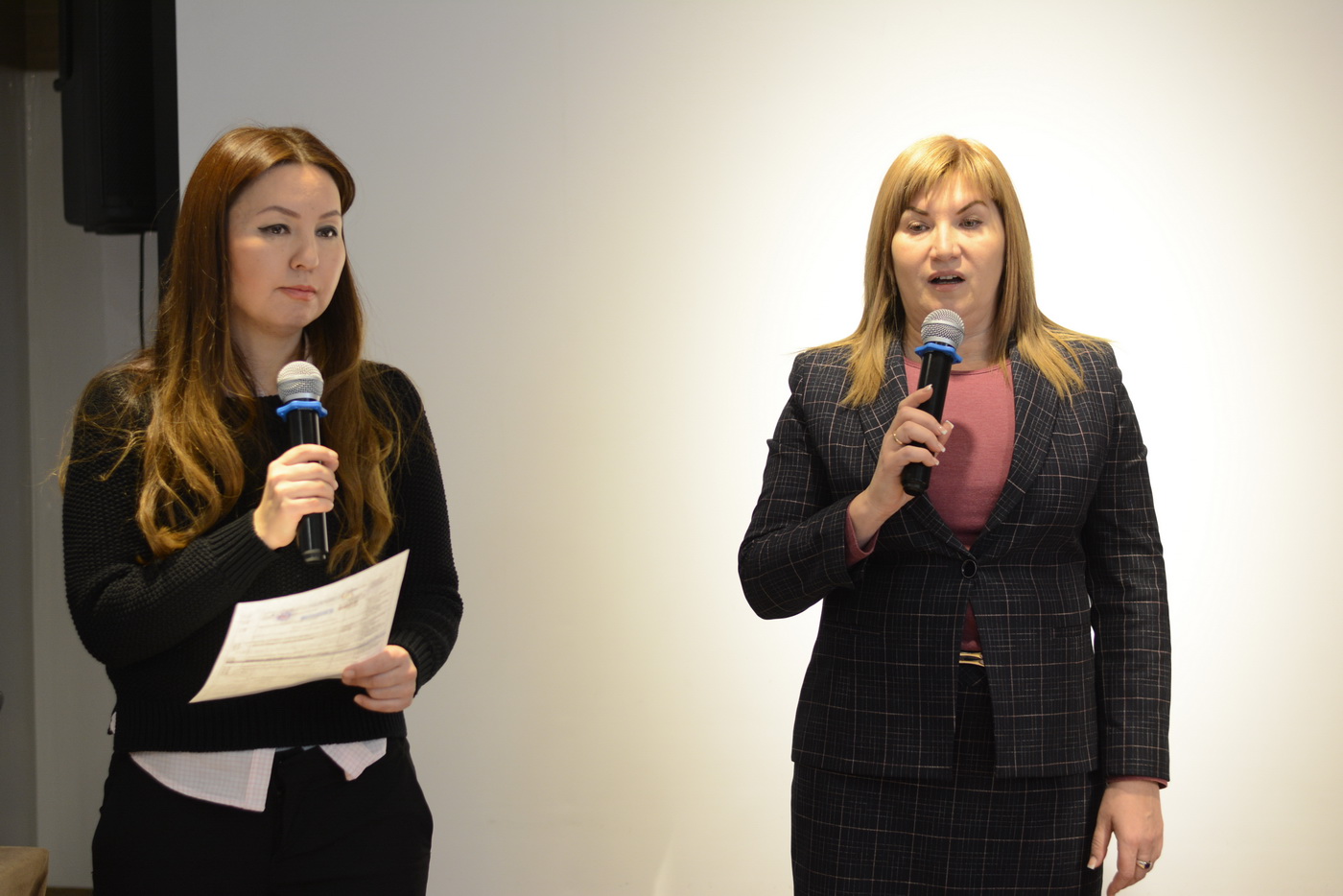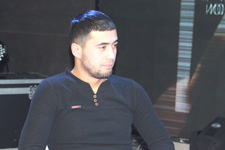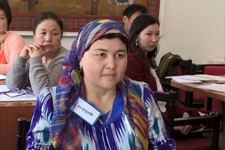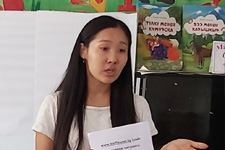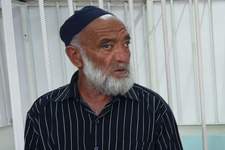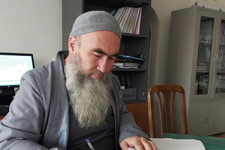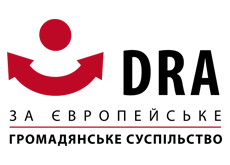POLITICAL SPACE FOR CIVIL SOCIETY MUST BE OPEN
This is the statement by the participants of the laboratory “Political space for CSOs: democracy + human rights= sustainable development”.
The event was held on November 15, 2018 within the framework of the XII International Festival of Human Rights Documentary Films in Bishkek.
Participants were welcomed by Dimitris Christopoulos, president of the International Federation for Human Rights, FIDH (France), who arrived in Kyrgyzstan specifically at the festival, official meetings and interactions with the civil society.
Over 30 participants of the workshop were human rights activists, leaders of CSOs, experts, representatives of the Ministry of Justice of the Kyrgyz Republic, activists from Kyrgyzstan, Kazakhstan, Tajikistan, Italy, France, Czech Republic who worked in the four groups: “Freedom of expression”, “Freedom of assembly”, “Freedom of association”, “Participation of women and migrant workers”. These working groups were created for a discussion of promotion of key liberties required to make political space function and to achieve Sustainable Development Goals. Experts delivered their reports on the situation of these freedoms amid current realities and civil society issues in Central Asia.
“The situation of the freedom of expression is similar in all the three countries – Kyrgyzstan, Kazakhstan and Tajikistan,” Inga Sikorskaya, programme director of the School of Peacemaking and Media Technology in CA (Kyrgyzstan), said presenting her speech on “Freedom of expression in CA: challenges, trends, solutions”. “The main risks are broad interpretation of the laws on inciting hatred, confusion of this interpretation with extremism, which allows prosecuting independent activists, journalists, human rights defenders; growth of hate against socially disapproved groups in our countries, as well as the constantly high level of propaganda, which affects the shaping of public opinion and public discourse.”
For a few hours, working groups were discussing and developing recommendations and action plans. As a result, every team represented their packages of solutions.
Muattar Khaydarova, an expert from Tajikistan, speaking about the trends and risks in the sphere of freedom of association, announced the recommendations worked out by the group of participants specifying the need to improve the laws on financing NGOs from internal sources, emergency adoption of law on charitable organisations, stopping the use of tax law abuse as a leverage on the civil society in Tajikistan.
Gulshaiyr Abdirasulova, a representative of Kylym Shamy (Kyrgyzstan), introduced the audience to the peculiarities of legal proceedings related to the right to freedom of peaceful assembly. The working group with her participation suggested a series of steps to improve of this sphere. In particular, the group recommended developing and introducing a programme on the compliance with the freedom of peaceful assembly into training modules for judges, implementing the process of evaluation of judges and law-enforcement bodies regarding the human rights knowledge, shaping the practice of decision-making by the UN Human Rights Committee, an entity supervising the implementation of the International Covenant on Civil and Political Rights in member states.
Aina Shormonbayeva, president of International Legal Initiative Public Foundation (Kazakhstan) presented recommendations of her group “Participation of women and migrant workers”.
“The governments and the parliament must respond to public interest and demands, which is the key principle of the open political space for CSOs”, Shormonbayeva said. Residents of villages Min Kush, Zhumgal district of Naryn oblast, Kyrgyzstan, arrived specifically to take part in this workshop because they live in an environmentally fragile area due to uranium mining implications, where people suffer from diseases and poverty. The activists recommended that the authorities should handle this situation as soon as possible. Particularly, they recommended developing a special mechanism of enforcement of the decision to relocate the residents of 23 houses in the village of Min Kush.
Ermek Baisalov, an editor of analytical portal CABAR.asia, emphasised the importance of interaction between the expert community and civil society organisations in Central Asia. The expert capacity is a serious basis for joint solution of issues, he emphasised.
The four working groups suggested their action plans to promote the stated freedoms that are needed by the countries to achieve Sustainable Development Goals. Some of suggestions were to obtain the decision of the Plenum of Supreme Court regarding the interpretation of articles related to the incitement of hatred and concerning the freedom of expression in media and on the internet, to adopt the anti-discrimination law of the Kyrgyz Republic in order to protect the rights and freedoms of diverse groups in the society, to adopt the law on charitable organisations, joint work to reduce unemployment and labour migration, to introduce 40 per cent quota for the representation of women in government, to introduce the practice of public hearing of public meeting law enforcement, to encourage the use of UN human rights monitoring mechanisms: use of specific UN procedures, individual appeals to the UN Human Rights Committee, appeals to special UN rapporteurs.
All the recommendations will be sent to the government, parliament, international organisations, media outlets.
The laboratory was organised by the School of Peacemaking and Media Technology in CA jointly with the human rights movement Bir Duino Kyrgyzstan and the representative office of the Institute for War & Peace Reporting (IWPR) in CA.
A photo report of the laboratory is available on the official page of the XII International Festival of Human Rights Documentary Films on Facebook: http://catcut.net/JWhx
Alina Amilaeva, programme assistant of the School of Peacemaking and Media Technology, Kazakhstan.
The article was prepared by the School of Peacemaking and Media Technology in CA, an official media campaign partner to the XII International Festival.



